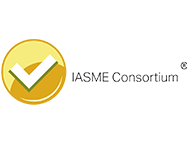How in an ever-changing world SME Companies can Succeed through outsourcing
How in A ever-changing world SME Companies can succeed through outsourcing.

There was as a time before the internet, before smart phones before mobile working. In those days if you wanted to look things up you researched the encyclopaedia. The phone book is where you found people’s phone number and address, Yellow Pages was the bible by the phone to find everything from the takeaway to plumber. Being alphabetically listed meant that a disproportionate number of companies in popular sectors such as home improvements were called Aardvark or AAA something. The value of first page listing in Yellow Pages was the same way as today being listed on the first page of Google in being found by new customers.
What changed was the internet. As it became accessible to the vast majority of buyers, so Yellow Pages, the phone book and encyclopaedias became obsolete to all bar laggards. They shrank from bibles to handbooks and tried to re-emerge as online services.
The Radio Times has been around for 96 years, with the first edition published on 28 September 1923 to support the emergence of radio programmes as they exploded into people’s homes. It became hugely popular with the rapid expansion of Television achieving weekly sales of 8.8 million copies by 1955, but as the world moved online and live TV is replaced by on-demand, in response sales have dropped to around 600,000 weekly sales.
Change happens often imperceptibly to those living through it but is obvious in retrospect.
For SMEs being able to adapt to changing environments is their greatest strengths. Growing quickly, responding to opportunity and change is by definition what distinguishes SME businesses in any sector. Being closer to the edge in every market sector makes SMEs more able to see emerging changes and identify and respond to changes earlier and being smaller and therefore more agile they can respond to changes quicker.
As technology and society change hand-in-hand so SME companies can take rapid action to adapt. Technology is a great leveller, the laptop and even the smart phone enables small companies to compete with PLCs. Being light and adaptive enables SMEs the ability to engage and succeed in areas such as the service sector where support and professional services can be more effectively delivered through agile companies and virtual organisations. The old model of big is better has broken down as technology enables light mobile and adaptable businesses to respond to needs.
Even in sectors such as advanced manufacturing and technology, SME companies can now successfully compete with traditional heavy weight PLCs. AI and UX are now the language of manufacturing, lean has become the standard operational requirement for success in these sectors. 3D printing on demand has replaced the factory. The Royal Navy now prints its small Unmanned Aerial Vehicles (UAV, drones) for deployment rather than carry planes.
Coupled with that modern SMEs have developed to be lighter in their make-up, no-longer heavy on headcount, office space, and systems. Today’s business can be almost virtual, with companies of outsourced expertise contracted in for projects and functions, resources focused on deliverables rather than headcount department numbers. This acceptance that business partners may have no headcount is epitomised by that observation that: Uber, the world’s biggest taxi company has no taxis, Airbnb is a holiday company with no bedrooms and Facebook the biggest publishing house has no physical content.
The SMEs that compete most successfully in these and other fields are set-up to succeed by leadership teams that understand that their core value proposition is what they can supply rather than how big do they need to be. In rapidly changing markets being adaptable and responding to demands requires companies to develop as light a footprint as possible. Why build something that is out of date by the time it opens?
So, don’t build a solid infrastructure, build an adaptable culture.
Outsource what you need to have but don’t need to manage. Being agile in the 21st century requires companies to focus on their core and trust others, their partners, to do everything else for them. Why buy cars when you can lease them from a management company who will maintain them (if you need them at all) at a lower true cost than you can. Why have servers when you can outsource that to a cloud back-up encrypted system that provides secure access to what you need when you need it, with other trusted parties managing data functions, CRM systems, marketing and support operations.
When it comes to people, outsourcing specialist and changing functions is now commonplace. Developing specialist outsourcing suppliers to manage and support people is becoming a standard practice for SMEs. With employee engagement, coaching and development of people being a strategic issue to support adaptable SME’s cultures. The concept of outsourcing to trusted parties everything from employee benefits, morale and engagement, Learning and Development as well as traditional functional HR outsourcing is a growing trend that frees SMEs to compete, retain and develop their people for tomorrow’s challenges.
For more and more leaders of SME businesses embracing radical change creates opportunities. Outsourcing everything you can, frees up resources enabling companies to succeed in competitive markets and that includes how you support and develop your people.
Register for a free 14 day trial: Free Trial
or
Visit our website for more information: www.IMPROVE.Online
Read On
When should an Outsourcing HR company add L&D to its portfolio?
When should an Outsourcing HR Company add L&D to its portfolio? Every Small business needs...SME Survival Kit
SME Survival Kit Keeping Everyone 'Productive' In the current challenging economic climate...Why successful SME’s outsource their Learning & Development
Why Successful SMEs Outsource their Learning & Development Fast growing and lean SME’s today...Accreditations



